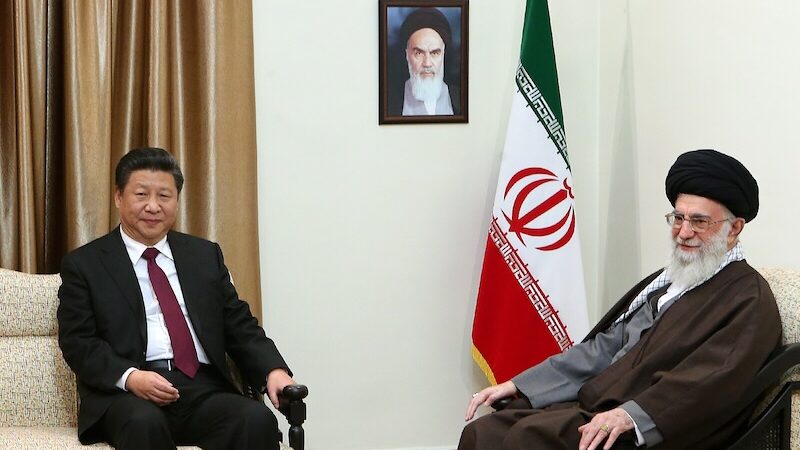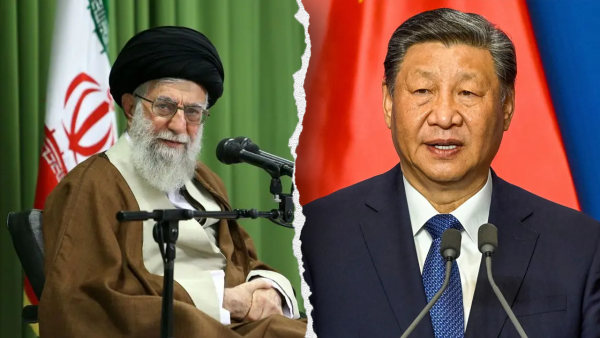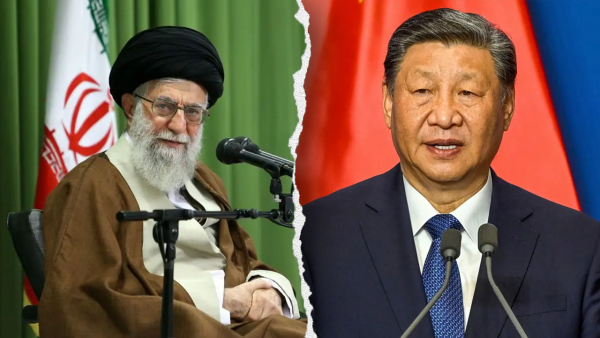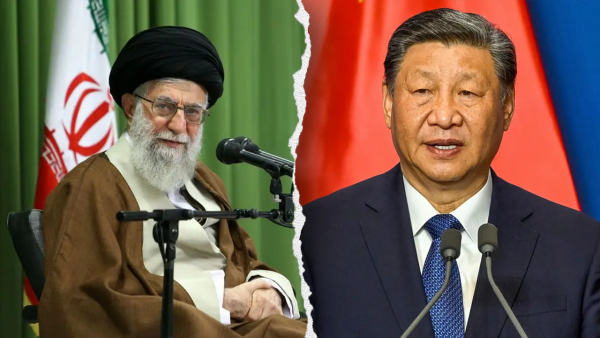China's Gain: How America's Middle East Stumbles Benefit Beijing

Welcome to your ultimate source for breaking news, trending updates, and in-depth stories from around the world. Whether it's politics, technology, entertainment, sports, or lifestyle, we bring you real-time updates that keep you informed and ahead of the curve.
Our team works tirelessly to ensure you never miss a moment. From the latest developments in global events to the most talked-about topics on social media, our news platform is designed to deliver accurate and timely information, all in one place.
Stay in the know and join thousands of readers who trust us for reliable, up-to-date content. Explore our expertly curated articles and dive deeper into the stories that matter to you. Visit Best Website now and be part of the conversation. Don't miss out on the headlines that shape our world!
Table of Contents
China's Gain: How America's Middle East Stumbles Benefit Beijing
America's wavering presence in the Middle East has created a power vacuum, one that China is expertly filling. For years, the US has been the dominant force, shaping regional politics and economics. However, a shift in strategic focus, coupled with ongoing regional instability, has presented a golden opportunity for Beijing to expand its influence, potentially reshaping the geopolitical landscape. This isn't simply about replacing American power; it's about China strategically leveraging opportunities to advance its economic and strategic goals.
The Shifting Sands of US Influence:
The US has gradually reduced its military footprint in the Middle East, prioritizing domestic concerns and focusing on competing with China and Russia on a global scale. This withdrawal, while driven by internal pressures, has left a void ripe for exploitation. The costly and protracted wars in Iraq and Afghanistan, along with the ongoing complexities of the Israeli-Palestinian conflict, have contributed to a sense of "mission fatigue" within the American public and government. This shift has been interpreted by many in the region as a lessening of US commitment, paving the way for other players to step in.
China's Strategic Inroads:
China's approach differs significantly from America's. It's less focused on military intervention and more on economic engagement. Beijing's strategy hinges on several key pillars:
-
Belt and Road Initiative (BRI): This massive infrastructure project connects China to the Middle East and beyond, fostering economic interdependence and enhancing China's influence. The BRI has seen significant investment in ports, railways, and other crucial infrastructure projects across the region, creating tangible economic benefits for participating nations. This approach contrasts sharply with the US's more interventionist approach.
-
Energy Security: China is the world's largest energy consumer, and the Middle East is a critical source of oil and gas. Strengthening economic ties with Middle Eastern nations secures access to these vital resources, reducing reliance on other potentially volatile regions. This energy dependence translates to political leverage for Beijing.
-
Non-Interference Policy: Unlike the US, China generally avoids taking sides in regional conflicts. This neutrality appeals to many nations wary of US interventionism, allowing China to build stronger diplomatic relationships without alienating any particular faction.
-
Technological Investments: China is investing heavily in technology transfer and infrastructure development in areas like 5G and renewable energy, further cementing its presence and influence within the region. This offers a compelling alternative to Western technologies, particularly for countries seeking to diversify their partnerships.
The Implications for the Future:
China's growing influence in the Middle East has significant implications for global geopolitics. The region's strategic importance, coupled with China's ambitious plans, suggests a potential paradigm shift in international power dynamics. While China's engagement brings economic opportunities, it also raises concerns about potential debt traps, human rights issues related to BRI projects, and the long-term impact on regional stability.
Conclusion:
The evolving dynamics between the US and China in the Middle East are complex and multifaceted. America's reduced engagement, stemming from a combination of factors, has inadvertently created an opening for China to expand its economic and strategic presence. This isn't a simple case of one power replacing another; rather, it's a strategic recalibration of global influence, with significant long-term implications for the region and the world. Understanding these shifting dynamics is crucial for navigating the complexities of 21st-century geopolitics. Further research into the specific economic and political ramifications of China's increasing involvement in the Middle East is vital for informed decision-making at both national and international levels.

Thank you for visiting our website, your trusted source for the latest updates and in-depth coverage on China's Gain: How America's Middle East Stumbles Benefit Beijing. We're committed to keeping you informed with timely and accurate information to meet your curiosity and needs.
If you have any questions, suggestions, or feedback, we'd love to hear from you. Your insights are valuable to us and help us improve to serve you better. Feel free to reach out through our contact page.
Don't forget to bookmark our website and check back regularly for the latest headlines and trending topics. See you next time, and thank you for being part of our growing community!
Featured Posts
-
 Assisted Dying Mps Vote In Favor Of Controversial Legislation
Jun 22, 2025
Assisted Dying Mps Vote In Favor Of Controversial Legislation
Jun 22, 2025 -
 Life Under Fear In Iran Todays News Also Covers The Dodger Stadium Dispute
Jun 22, 2025
Life Under Fear In Iran Todays News Also Covers The Dodger Stadium Dispute
Jun 22, 2025 -
 Analyzing The 98 67 Blowout Storm Vs Sparks Game Recap June 17 2025
Jun 22, 2025
Analyzing The 98 67 Blowout Storm Vs Sparks Game Recap June 17 2025
Jun 22, 2025 -
 Assisted Dying Legislation Celebrating Small Victories Facing Continued Resistance
Jun 22, 2025
Assisted Dying Legislation Celebrating Small Victories Facing Continued Resistance
Jun 22, 2025 -
 Relationship Goals Cameron Brinks Pride In Ben Felters Success
Jun 22, 2025
Relationship Goals Cameron Brinks Pride In Ben Felters Success
Jun 22, 2025
Latest Posts
-
 Wests Loss In Iran Conflict Chinas Response And The Implications For Global Stability
Jun 22, 2025
Wests Loss In Iran Conflict Chinas Response And The Implications For Global Stability
Jun 22, 2025 -
 Former Mlb Star Cozart No More Trump Support If War Erupts
Jun 22, 2025
Former Mlb Star Cozart No More Trump Support If War Erupts
Jun 22, 2025 -
 Chinas Calculated Response Weighing Retribution Against Risk In The Iran Conflict
Jun 22, 2025
Chinas Calculated Response Weighing Retribution Against Risk In The Iran Conflict
Jun 22, 2025 -
 Chinas Iran Strategy Retribution Or Concern Analyzing Beijings Potential Actions
Jun 22, 2025
Chinas Iran Strategy Retribution Or Concern Analyzing Beijings Potential Actions
Jun 22, 2025 -
 Substandard Conditions Continue Ice Re Ups Detention Center Contract
Jun 22, 2025
Substandard Conditions Continue Ice Re Ups Detention Center Contract
Jun 22, 2025
